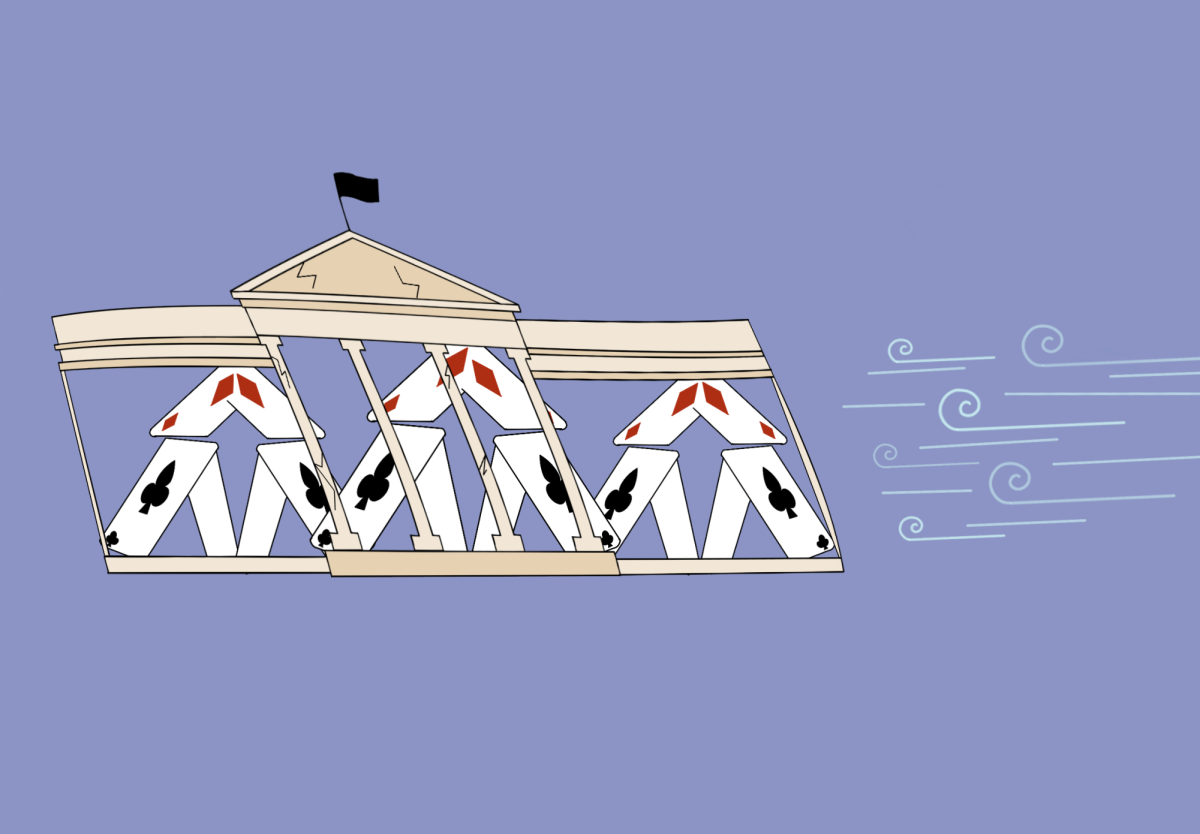
In a bold statement, student editors at the University of Georgia’s venerable newspaper, The Red & Black, walked out on Aug. 15, mere hours before the deadline for the newspaper’s second issue of the year. The students were angered by the appointment of Ed Morales, who previously had served as the editorial adviser, to the position of editorial director. This change in position gave Morales final say over the editing and publishing of stories in both the print and online edition of The Red & Black.
“After hearing about the proposed changes going forward, I did not feel like I would be an appropriate representative of this institution if those changes were to be put in place,” Polina Marinova, the editor-in-chief of The Red & Black before Aug. 15, told The Southerner.
Marinova and managing editor Julia Carpenter were reinstated on Aug. 20 after the board of directors reappointed Ed Morales to his former position of editorial adviser and returned final editorial decisions to the student editors. Board member Ed Stamper, who authored a controversial memo that introduced the new content guidelines, resigned.
The reinstatement of the student editors came after five hectic days of meetings, deliberation and argument among Red & Black staff, professionals, board members, and alumni that began the night of Aug. 15. According to an article published by the Student Press Law Center, a nonprofit organization that helps student journalists, Marinova became aware of the change in newspaper policy during a meeting she had Wednesday night, Aug. 15, with Morales, publisher Harry Montevideo, and a Red & Black board member. She immediately called a meeting with other student editors explaining the recent developments, and why she was deciding to step down from her role as editor-in-chief.
“It was like a movie,” Marinova said. “One by one all the editors said ‘I’m leaving, too’ and ‘I’m leaving, too,’ and everybody just got up and packed up their stuff and left.”
The former staff of The Red & Black started a blog, The Red and Dead, and began tweeting from the account @redanddead815 the next day.
“It was never our intent to replace The Red & Black, because we all love The Red & Black,” Marinova said. “But then, in the meantime, because nobody was covering the news while we were gone, we started reporting and editing articles to put on the blog.”
In a letter posted on the blog on Thursday, Aug. 16, Marinova cited a memo written by Stamper, a Red & Black board member, outlining the “expectations of editorial director at The Red & Black.” The memo included a controversial proposed policy that the staff should seek to report fewer stories that contained “content that catches people or organizations doing bad things.” This memo was a major factor in many of the students’ decisions to leave the newspaper.
“Recently, editors have felt pressure to assign stories they didn’t agree with, take ‘grip and grin’ photos and compromise the design of the paper,” Marinova said in the letter.
Joe Dennis, who teaches journalism at the Grady College of Journalism and Mass Communication at the University of Georgia, agrees with Marinova that the memo was not journalistically sound.
“That memo, of course, had a lot of objectionable comments that journalists would find offensive,” Dennis said.
Dennis said some of the things stated in the memo were “clearly out of the realm of journalism and journalism ethics.”
In an interview with The Poynter Institute, Red & Black publisher Harry Montevideo said the memo was a draft and “certainly not meant for publication.” Montevideo also said the appointment of Morales as editorial director was just a formalization of an already existing relationship.
Montevideo was involved in a physical altercation during a meeting on Friday, Aug. 17, between The Red & Black board of directors and former staff. Joshua Buce, a reporter for Grady Newsource, the University of Georgia’s student television news source, said Montevideo forced him to the ground after he told him to turn off his camera.
“I worked for Harry for four years, and he’s not a bad person,” Chelsea Cook, a Grady alumnus and former Red & Black editor-in-chief, said, “but it seems like something has gone wrong and he might need to re-evaluate his reasons for being publisher of a student organization.”
Montevideo, Morales, and Stamper all declined to speak to The Southerner.
Cook, along with two other alumni, wrote a letter to the board of directors, which was read publicly at the Friday meeting.
“By the time we printed out the letter and presented it to the board, we had over a hundred signatures,” said Cook, who served as co-managing editor of The Southerner for the 2005-2006 school year.
Editorial writer for the Atlanta Journal-Constitution and the former editor-in-chief of The Red & Black, Kyle Wingfield said that The Red & Black has a tradition of student editors having the final say as to what goes in the paper.
“The biggest change that was going to be made was to take that away and put it in the hands of one of the professionals who works there,” Wingfield said. “That just undermines the entire purpose of the newspaper.”
In a statement released Friday at the meeting, the board of directors said, “the student editor has always had the final editorial decision responsibility for our news content.”
The board also said that Stamper had tendered his resignation earlier that day.
A statement from the Red & Dead after the meeting confirmed prior review was taken off the table, and that Ed Morales had “made it clear that he has returned to his role as editorial adviser.” The statement also said Marinova and Carpenter would reapply for their positions at The Red & Black.
The board interviewed Marinova and Carpenter on Tuesday, Aug. 21, for their old jobs, and they were reinstated the same day. Marinova said she thought the interview was a positive note to end on.
“We met our three goals that we set, and we accomplished everything we set out to accomplish,” Marinova said.
A joint statement released Tuesday by Red & Black student editors, board members, and publisher, said “all of us – student, staff and board – plan to move forward in a new era of open communication.”
Wingfield said the outcome of the controversy was good, because it defended the idea that the students run the paper and determine its content.
“When I was at The Red & Black, we made mistakes, you always do, but the point is to make those mistakes and learn from them,” Wingfield said. “And the best way to do that is to have to make the decisions, have to make the calls.”
He thinks The Red & Black still faces serious challenges, however, in its declining relevancy on campus.
“That’s going to be a big challenge for them going forward, to pull together, and reverse that trend, because not being relevant is the kiss of death for any type of media outlet,” Wingfield said.
Cook said she hopes Marinova and the other student editors who are back with The Red & Black are not too disillusioned by the controversy, so they can have the same wonderful experience that she had at the newspaper.
“You can ask any Red & Black alumni who has a job at a paper or who has a job in journalism and they’ll say The Red & Black was their favorite job, because you’re just on top of the world,” Cook said.
Marinova is confident that they can continue to be a great newspaper.
“We have to move forward and try to put out the best and most accurate content as possible,” Marinova said. “We will try to preserve The Red & Black’s reputation and further build it, so that future generations of Red & Blackers can have a voice and can have a place to learn and to do journalism.”






